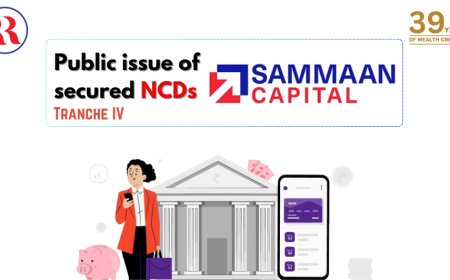Why Startup Founders Shouldn’t Ignore Wealth Planning in the Early Stages
Starting a business feels like spinning a thousand plates at once Ive been there Youre building your product hiring people dealing with fundraising marketing and trying to stay sane through it all Youre not sleeping much and wealth planning is the last thing on your mind I get it When you're chasing growth or pitching to investors planning for long term personal wealth seems like a luxury But its not In fact ignoring this early could cost you far more than you think This is where Startup Wealth Planning Firms provide support that can be crucial for young companies trying to establish both business and personal financial security from day one
The truth is the earlier you start thinking about how to grow and protect your personal and business assets the more freedom you create for yourself later Its not just about avoiding taxes or saving money Its about giving yourself options Options to reinvest options to exit smartly options to not lose everything you worked for in case things go sideways
In the early days most founders pour everything into their startups That is admirable but risky The right support helps balance company growth with personal stability For a deeper look you can check the experts at httpspearllemoninvestcominvestmentconsultingfirmsforstartups who focus on startup financial consulting
What Does Wealth Planning Even Mean for Startup Founders
I used to think wealth planning was only for people who already had millions That is the biggest myth I want to break here For founders especially in the early stages it means aligning your personal goals with your startups trajectory This includes
- Equity structuring so your shares are taxe efficient
- Drawing a salary at the right time in the right form
- Retirement savings plans that work with startup cash flow
- Protecting assets from liabilities through correct entity setup
- Setting up trusts or family holding vehicles when appropriate
- Managing investment income from side ventures or prior exits
All of these decisions have long term consequences Making them too late often means redoing things under pressure
Why Founders Usually Avoid Wealth Planning Early On
Heres what Ive personally heard over and over from fellow entrepreneurs
- I dont even have money yet Ill plan later
- It feels greedy to think about my own wealth when the startup isnt profitable
- Its too early to worry about taxes and estate planning
- Were still trying to survive wealth planning feels unnecessary
The irony is that waiting until later often means missing windows where tax law timing and ownership structure couldve made a huge difference For instance if your startup suddenly gets acquired and youve done no preexit planning youll pay more in taxes and may even risk losing portions of your payout due to mismanaged equity
Where Early Planning Pays Off Big Time
I met a founder who sold his SaaS business for over 30 million and still had to scramble postsale to move assets out of his personal name His advisors told him they couldve reduced his tax bill by 40 percent if hed started planning two years earlier
Compare that to another founder I know who started her venture with a holding company owned by a trust She exited for 15 million five years later and kept nearly all of it due to effective wealth planning from day one
Some clear benefits include
- Lower tax liability on equity gains
- Better estate transfer options
- Protection against legal claims through proper asset segmentation
- Diversification into other wealth vehicles over time
Do You Need to Be Rich to Start Planning
Absolutely not Wealth planning is not reserved for high net worth individuals Its about building habits from day one That means
- Setting up a simple SEP IRA to begin retirement saving
- Using founder friendly insurance options to hedge risks
- Having a CPA who understands stock options QSBS rules and founder equity splits
- Choosing the right jurisdiction for incorporation to reduce tax burdens
Even if your net worth is just a few thousand the right financial structure can help it grow more efficiently
How Equity Management Plays Into Founder Wealth
Equity is the biggest potential source of founder wealth but also one of the most mismanaged Cap table errors mistakes in 409A valuations and lack of planning around QSBS exemptions can destroy millions in value
Things to handle early include
- Getting legal help to ensure your equity splits protect your future
- Understanding how dilution affects your eventual wealth
- Setting vesting schedules that align with both founder protection and investor demands
- Documenting everything related to equity properly from day one
Real story one founder I worked with lost 12 percent of his company due to an untracked early share grant to a friend who left after 3 months That mistake cost him millions at exit
Should You Pay Yourself or Not
Most startup founders underpay themselves or dont take a salary at all While noble this can mess with your long term financial picture especially if it means borrowing money or living on credit cards
Things to consider
- What is the minimum salary you need to avoid debt
- How can you structure income to reduce self employment tax
- Can you set up distributions through a legal entity rather than a paycheck
- Does your startup have a budget line for founder financial planning
Paying yourself isnt greedy its strategic Without personal sustainability you wont be around long enough to make the startup work
How to Use Tax Laws to Your Advantage
This is a huge area founders ignore until its too late For example
- Qualified Small Business Stock rules can exempt up to 10 million from capital gains tax if structured properly
- R and D tax credits can give back a portion of what you spend on engineering
- Setting up the right kind of entity C Corp vs S Corp vs LLC impacts your taxes significantly
- Deductions on home office travel and even meals are often missed
I learned this the hard way when I had to pay an extra 11000 in taxes my first year simply because I didnt document my business travel properly
When Should You Start Wealth Planning as a Founder
If youre asking the question the answer is now Ideally even before incorporation At the very least before your first funding round Key milestones to trigger wealth planning review
- Company formation
- Seed round fundraising
- First hires
- Generating revenue
- Considering a merger or acquisition
- Bringing on a cofounder
Each stage introduces financial complexity that has personal consequences Wealth planning helps you stay in control
What Advisors Should a Founder Work With
Founders need a small team of trusted professionals from the start This doesnt mean hiring a big firm Start lean with targeted advice
- Certified Public Accountant who understands startups
- Legal advisor familiar with equity and incorporation
- Financial planner who has worked with entrepreneurs
- Insurance broker who can set up key man policies or D and O insurance
- Exit advisor if youre even thinking of a sale in 3 to 5 years
Working with someone who speaks the language of startups avoids costly mistakes
Common Wealth Planning Mistakes by Founders
- Delaying until post funding when valuations are already locked
- Not separating business and personal accounts
- Using personal credit cards for startup expenses
- Not understanding how vesting works
- Letting equity go too easily without structure
- Ignoring insurance entirely
These things dont just hurt your personal net worth they also make you less attractive to investors
Can Wealth Planning Make You a Better CEO
Absolutely When your personal finances are in order youre less likely to make feardriven decisions You can
- Take calculated risks
- Say no to bad funding deals
- Invest personally in your startup without compromising your familys security
- Walk away when you need to without financial collapse
Your team and your investors want to follow someone with stability and long term vision
How to Plan If Youre Already in the Middle of It
Maybe youre already running the startup and it feels like you missed the window You didnt Start with a financial audit Find out
- What equity do you really own and whats it worth
- Are there any tax advantages still available
- Can you restructure any debt or investment to be more founder friendly
- What exit scenarios are realistic and what do they look like financially for you
Then build forward with clarity Even one or two smart decisions today can have a compounding effect
Building Wealth Beyond Your Startup
Your company might be your main focus but it shouldnt be your only financial vehicle Founders who ignore diversification often regret it later
- Real estate can offer passive income and tax benefits
- Index funds and ETFs can provide steady returns with low management
- Angel investing can turn past experience into new opportunities
- Setting up a trust early can protect family wealth for the next generation
Diversification protects against downside and keeps your wealth growing even if your business hits a rough patch
Final Thought
Wealth planning in the early days of your startup isnt about greed or distraction Its about being smart and staying in control Starting early means fewer mistakes and more freedom down the road You owe it to yourself and your future to take this seriously The decisions you make today will shape what youre able to do ten years from now and beyond
Let me know if youd like this turned into a downloadable format or need it extended even further to hit higher word count targets


































